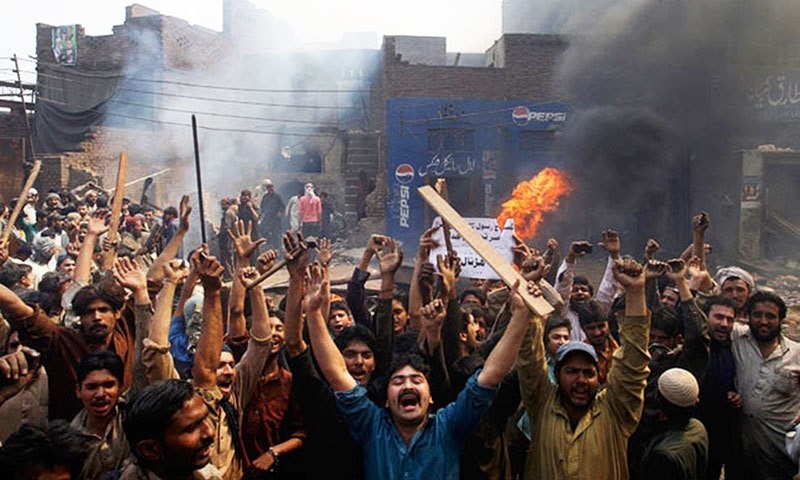
By Junaid Qaiser
The misuse of Pakistan’s draconian blasphemy laws is deeply alarming, as mob justice and violent crowds increasingly take the law into their own hands, particularly targeting Christians and other vulnerable communities. Christian persecution is on the rise, fueled by these unjust laws and a system that often fails to protect minority rights.
On September 19, 2024, Dr. Shah Nawaz Shah, a doctor in Umerkot, Sindh, was murdered after being accused of sharing blasphemous posts on social media. He had been charged under Section 295-C of the Pakistan Penal Code, a law that carries the death penalty for alleged blasphemy against the Prophet Muhammad. Reports suggest that Dr. Shah was killed by Mirpur Khas police, with his body later moved to a civil hospital.
Earlier, on September 17, Dr. Shah had been stripped of his duties at the District Headquarters Hospital in Umerkot and was asked to report to the Health Department in Karachi. This followed a massive public outcry, sparked by accusations that he had posted blasphemous content through an alleged Facebook account.
The Health Department’s letter cited “a strong presumption” that he had shared posts desecrating the Prophet of Islam and the Twelve Imams. Protests had erupted across Umerkot, and the violent mobs only subsided when the local Senior Superintendent of Police assured them that legal action would be taken against Dr. Shah.
This case is one of many in Pakistan, where allegations of blasphemy, particularly against religious minorities particularly Christians, have led to mob violence and extrajudicial killings.
In many instances, the authorities either remain passive or, worse, are complicit in enabling such attacks.
A recent case saw a man killed while in police custody, further illustrating the terrifying implications of these laws and the lack of due process.Two recent murders highlight this disturbing trend.
In Quetta, Abdul Ali was accused of blasphemy based on a video recording and was subsequently arrested. While in custody, he was shot dead by a police officer, Saayd Muhammad Sarhadi, who is now being hailed as a hero. Abdul Ali’s family has since pardoned the officer, and his act is being glorified as a religious service. Whether Abdul Ali was guilty of blasphemy or suffering from a mental health issue—common in many blasphemy cases—remains unknown, as no psychiatric evaluation, as mandated by law, was conducted.
The second case involves Dr. Shah Nawaz Shah, accused of blasphemy through social media posts. He denied ownership of the account in question, claiming it was an old, unused account, and alleged that he was being framed. While the police were attempting to arrest him, he was killed in an alleged encounter.
Authorities claim that he was with an armed accomplice who opened fire on the police, resulting in Shah’s death.
However, this narrative is commonly used to justify extrajudicial killings, raising serious doubts about the legitimacy of the encounter.In both cases, police officers were directly involved in the killings of the accused. Without proper investigations into these incidents, and accountability for any foul play, any citizen in Pakistan could fall victim to these laws, framed as a blasphemer by a vengeful mob or an overzealous officer.
The ease with which social media identities can be manipulated further exacerbates this danger, leaving individuals vulnerable to false accusations and death.
These cases underscore the urgent need for reforms in Pakistan’s blasphemy laws and the enforcement of justice. Without such measures, innocent people, particularly religious minorities, will continue to be persecuted, and the rule of law will remain dangerously undermined.